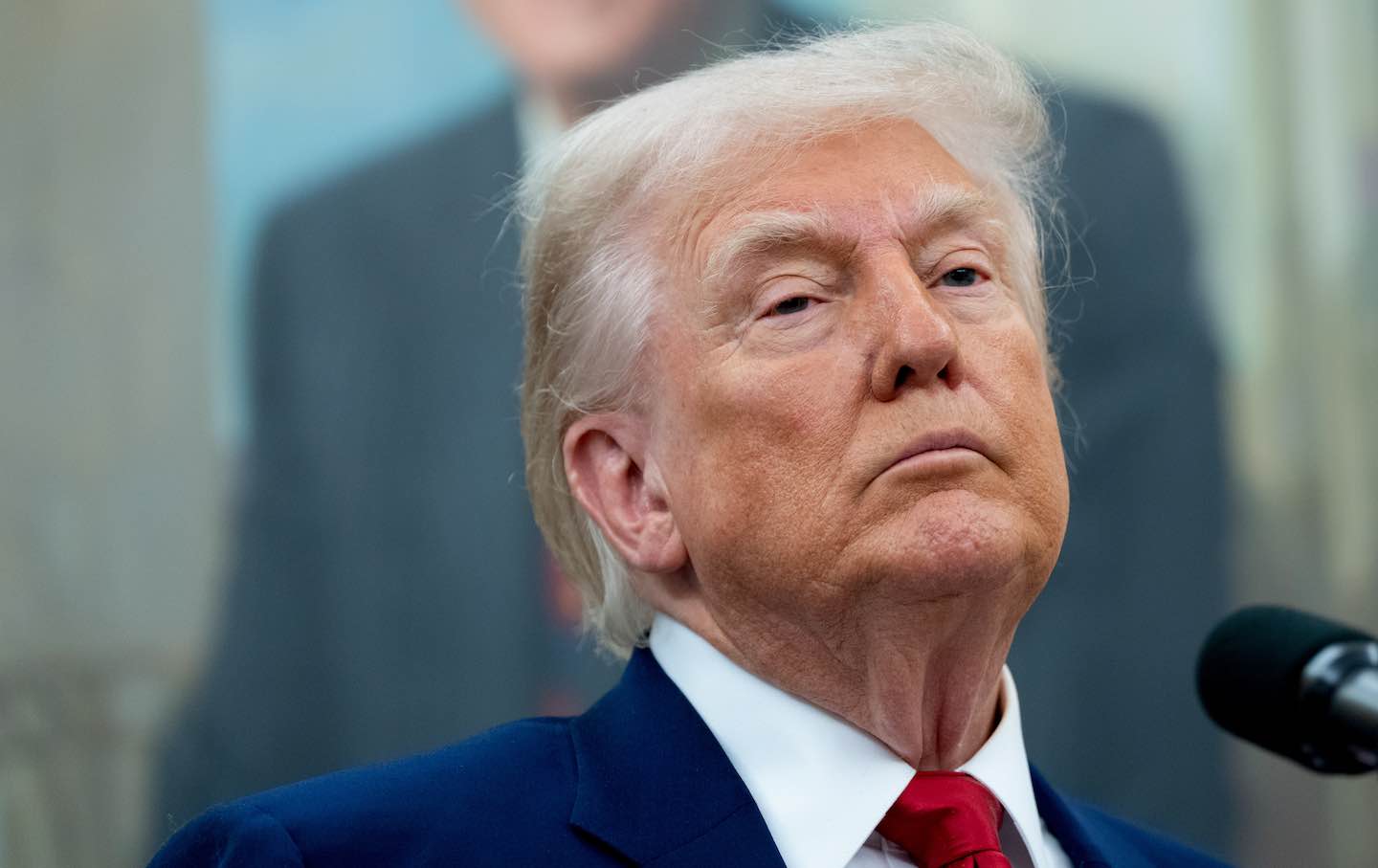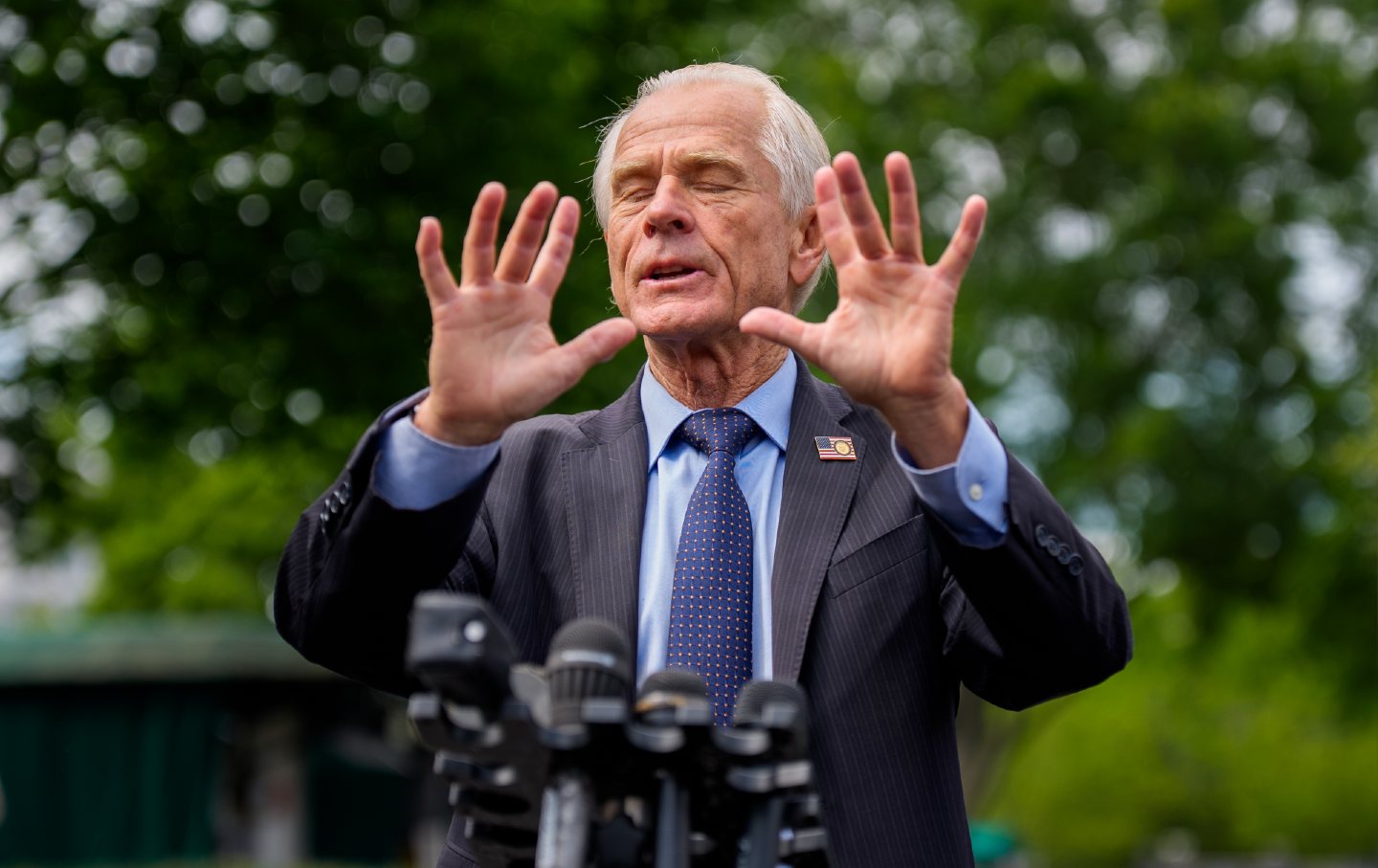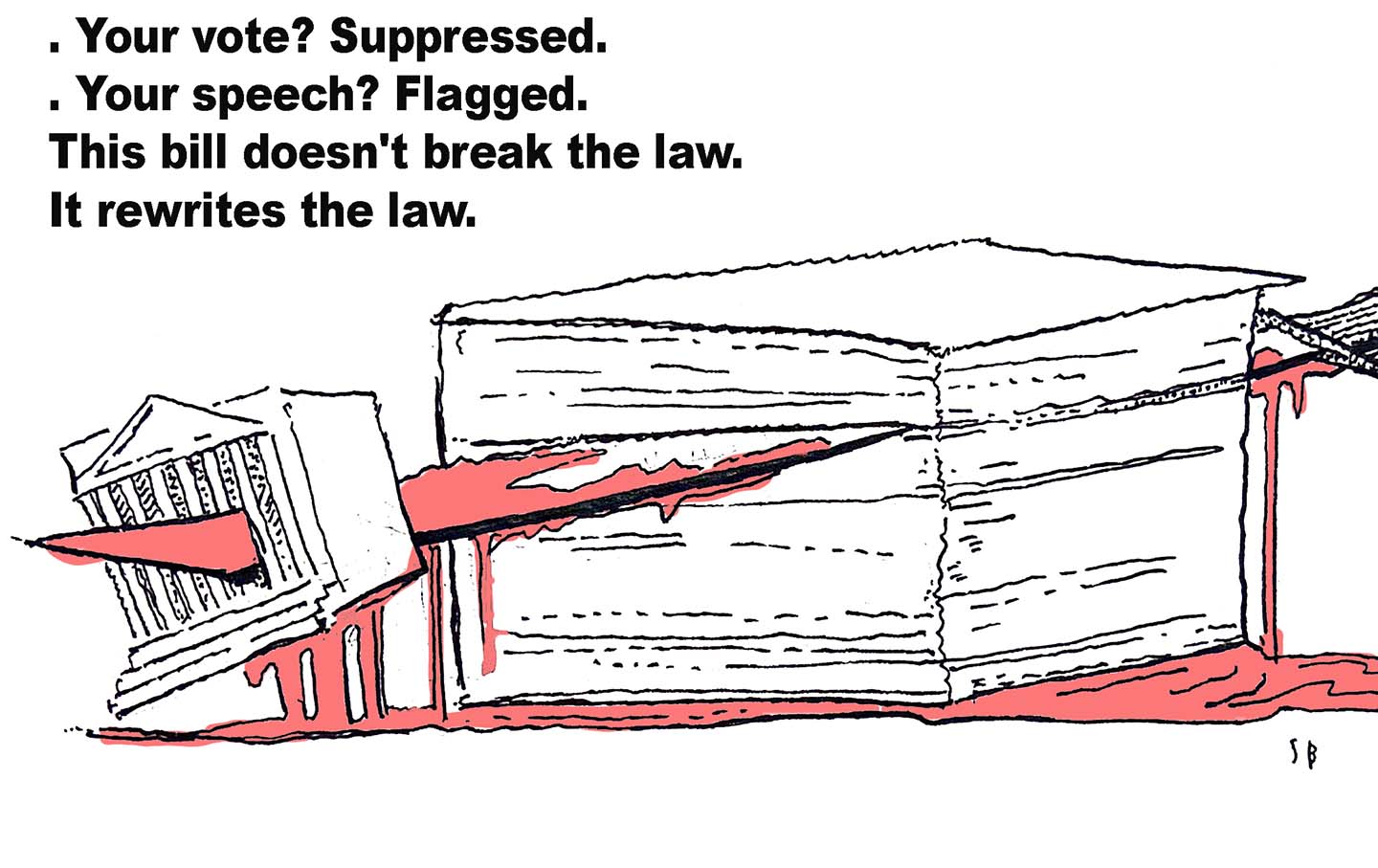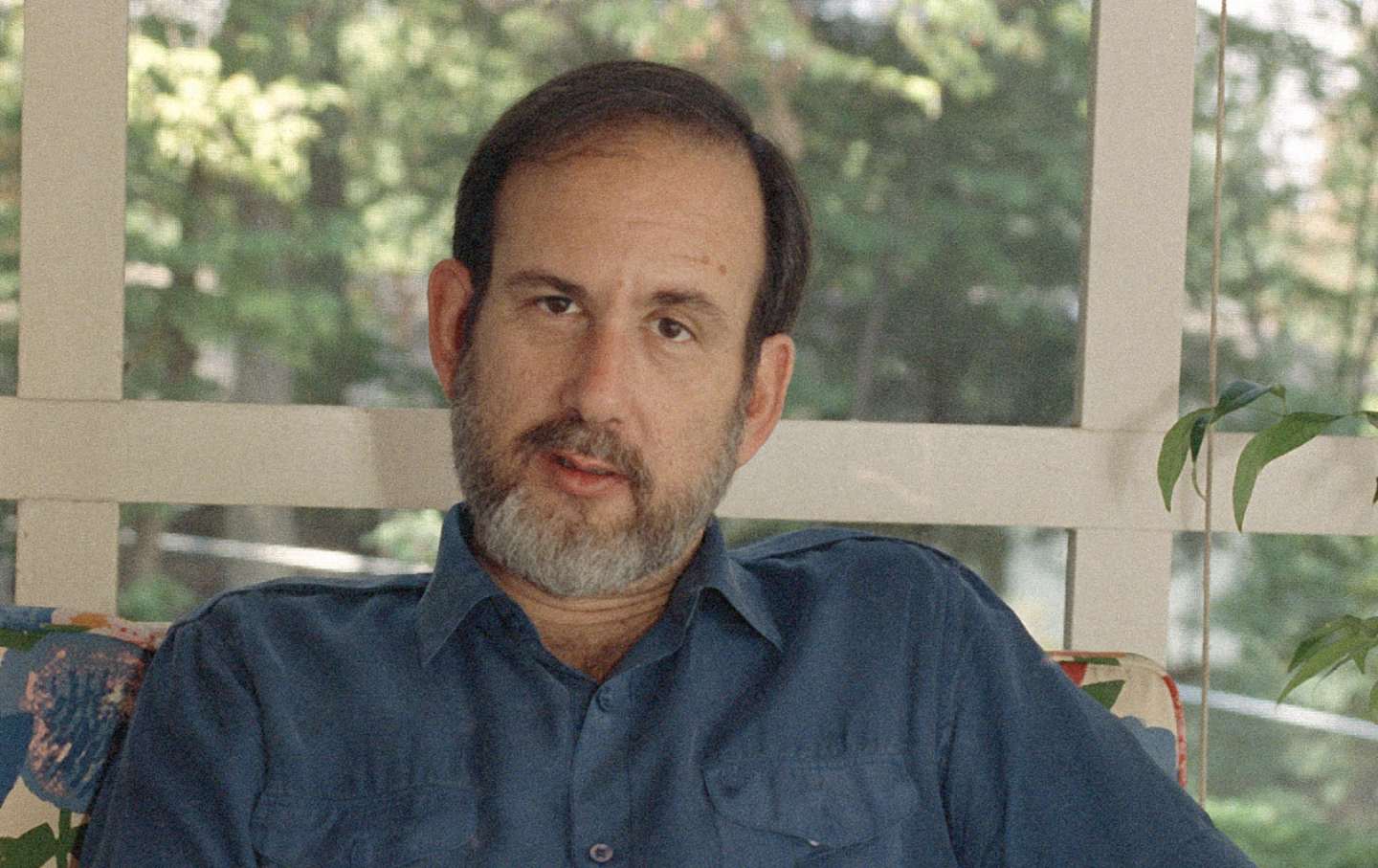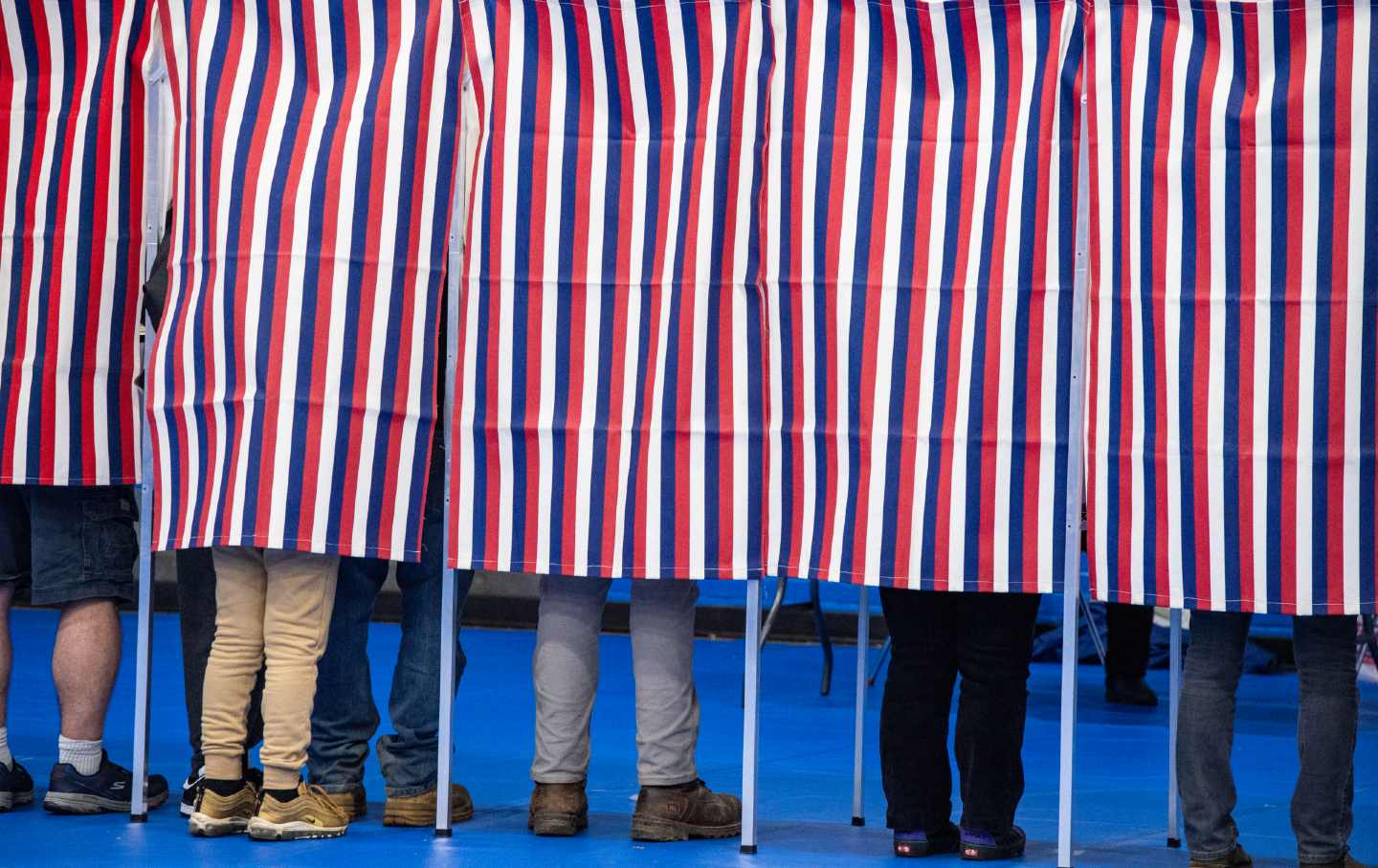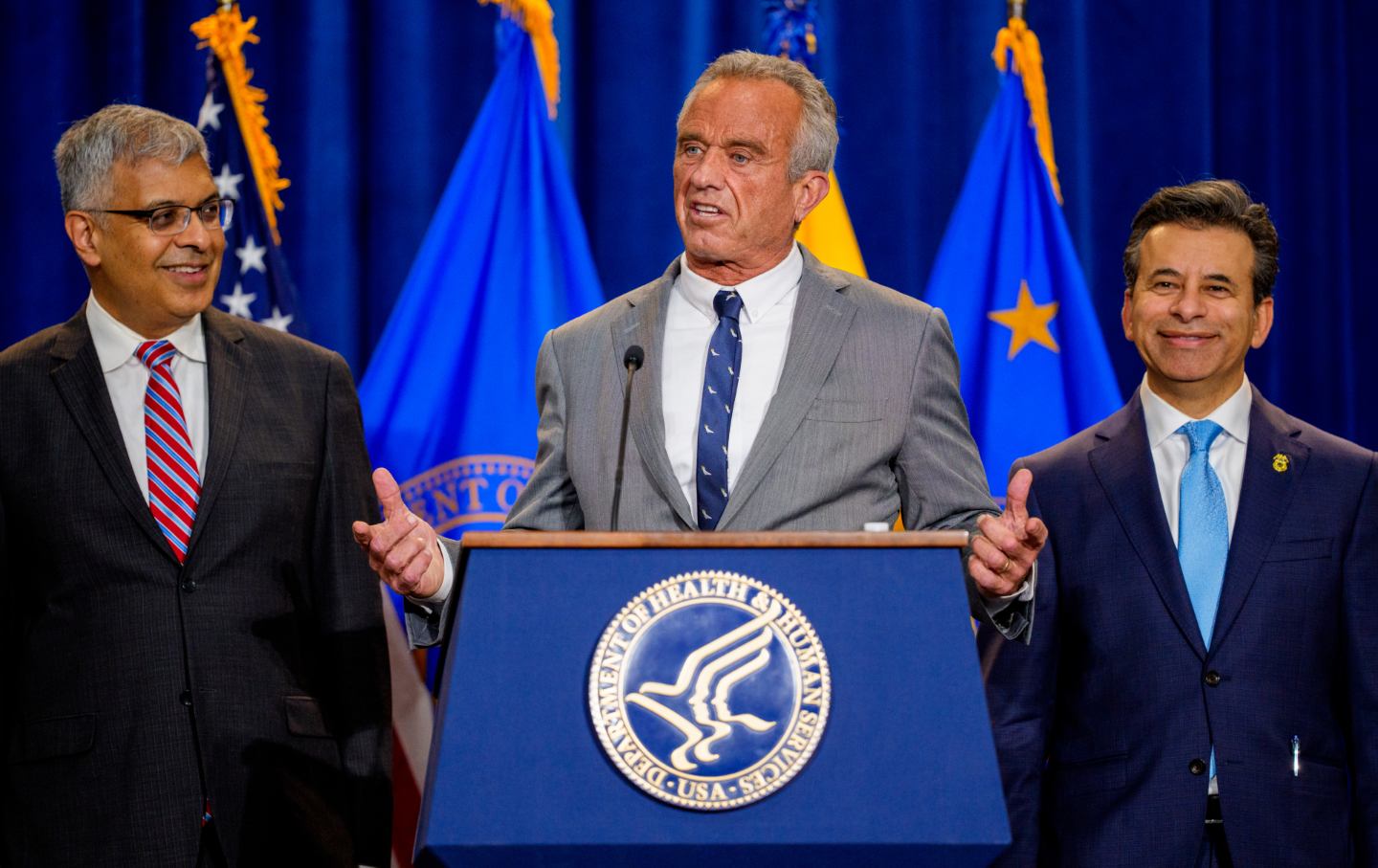A Short History of the Aaron Rodgers for Vice President Campaign
After just one week, Robert F. Kennedy Jr. appears to be abandoning the idea of putting the quarterback on his ticket.
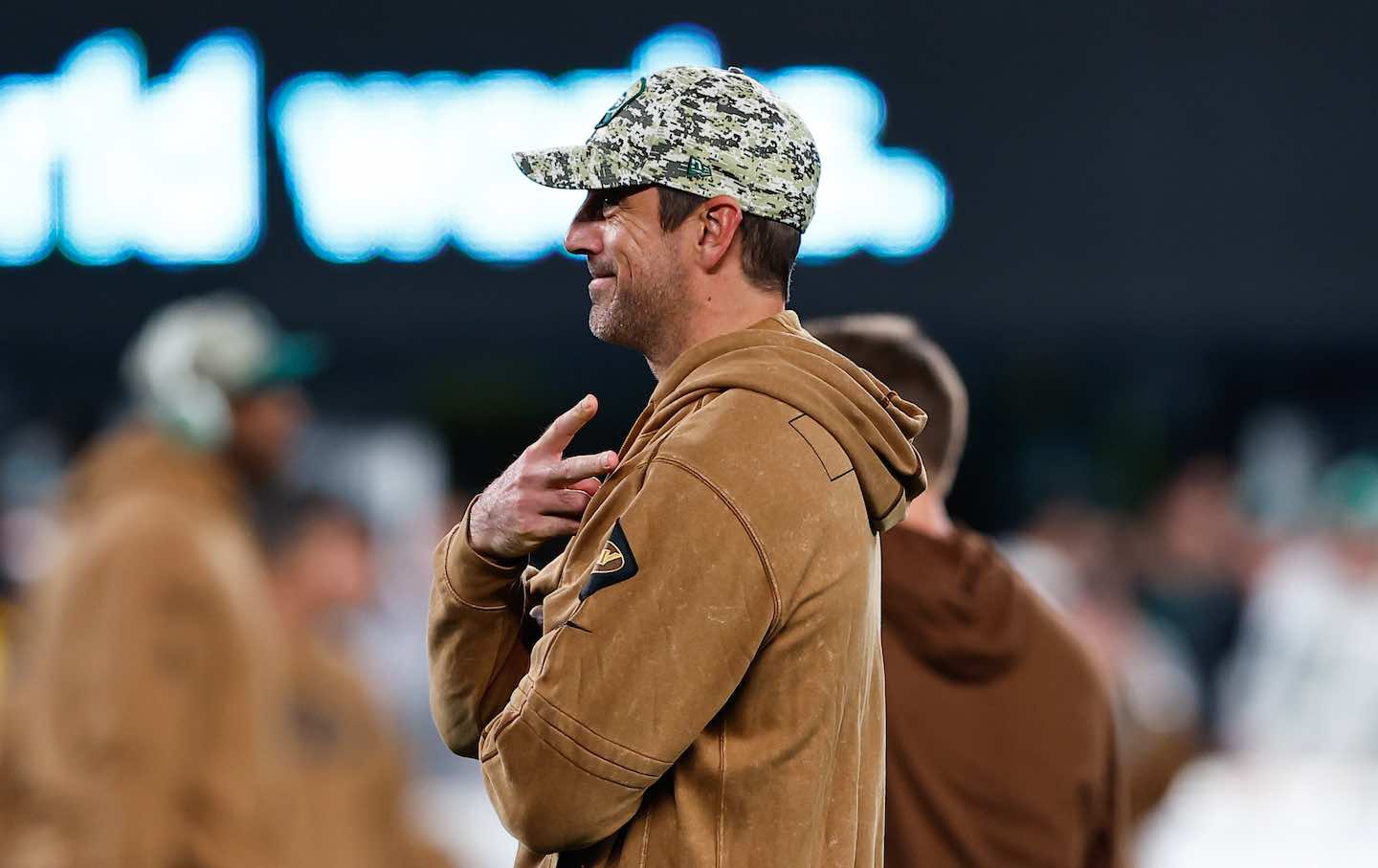
Aaron Rodgers of the New York Jets prior to the game against the Los Angeles Chargers on November 6, 2023.
(Photo by Rich Graessle / Icon Sportswire via Getty Images)Robert F. Kennedy Jr. spent much of last week trying to get Americans to imagine that former Green Bay Packers quarterback Aaron Rodgers could be their vice president. The project, like many of those associated with Kennedy’s quixotic presidential bid, faltered under further scrutiny. Fair enough. But let’s pause for a moment to consider what the Rodgers boomlet tells us about where Kennedy is coming from and, perhaps, where he is headed.
At the root of the Rodgers for vice president fantasy was another fantasy: the one that suggests Kennedy is going to be the next president.
For purposes of discussion, however, let’s suspend disbelief and entertain the “logic” behind the decision of RFK Jr. to float the name of a four-time NFL MVP as a prospect for the top position in the line of presidential succession.
A nonsensical notion, you say? Not so fast. We’re talking about a position that was previously held by Dick Cheney.
Despite Cheney’s decades of political maneuvering as the White House chief of staff, US representative from Wyoming, secretary of defense, and CEO of Halliburton, it turned out that he was uniquely unfit to serve as vice president.
With that in mind, Kennedy could have made a case that Rodgers—as someone who was capable enough to lead the Packers to the Super Bowl, before joining the New York Jets—couldn’t be any worse than Cheney. Or Dan Quayle, for that matter. But Kennedy didn’t try to sell Rodgers as a candidate who, in his own way, was better prepared than some of the office’s previous occupants.
That makes sense only if you recognize where Kennedy is coming from. Traditional measures of qualification aren’t a big concern for a candidate whose main claim to credibility as a contender for the presidency is his last name. Kennedy’s campaign tends to be less interested in track records of official accomplishment than in shared sensibilities.
Kennedy saw in Rodgers someone who thinks like him, and that was more than enough to make a match.
So it was that Kennedy, the nephew of President John F. Kennedy and the son of 1968 Democratic presidential contender Robert F. Kennedy, started talking up Rodgers, a political neophyte who shares his skepticism about vaccines. “My father used to say one of the duties of living as a citizen of democracy is to maintain a constant posture of skepticism toward authority. And I think Aaron’s shown that,” RFK Jr. told Fox News last week. “He’s also somebody who I think will help me get the country healthy again. You know, he’s 40 years old. He’s focused on his own health. He’s very aware of health issues. And you know, that’s one of the things I’m going to—that’s one of the key parts of my agenda, is to get the country healthy again.”
Kennedy, who briefly bid for the Democratic presidential nomination before repositioning himself as an independent contender, has been stoking speculation about his VP pick in anticipation of a March 26 running-mate announcement.
Lots of names have been under consideration, but the most “serious” speculation, until recent days, centered on Rodgers and Jesse Ventura, the former professional wrestler who parlayed his celebrity into a term as governor of Minnesota from 1999 to 2003.
Kennedy and Rodgers have both made headlines because of their anti-vax stances. The candidate wrote a best-selling book criticizing Dr. Anthony Fauci’s advocacy for vaccines as director of the National Institute of Allergy and Infectious Diseases. Rodgers acknowledged in 2022 that he might have misled reporters when asked about his Covid-19 vaccination status during the 2021 season. Far from being put off by that history, Kennedy told Fox, “Aaron Rodgers is battle-tested. He’s stood up. He’s been hammered by the press, stood up for things we believe in. I like that’s part of his character. He’s a critical thinker, and I think we need that at the time as you know the rise of [artificial intelligence].”
Popular
“swipe left below to view more authors”Swipe →For his part, Rodgers hailed Kennedy’s “courage” and declared last fall, “I believe in medical freedom and informed consent, and I’m voting for Robert Kennedy Jr.” In another interview, Rodgers said, “I believe he’s going to continue the legacy of his uncle, John F. Kennedy, and his father, Robert Kennedy.”
Notably, the most prominent and politically engaged members of the Kennedy family have rejected that argument and endorsed Democratic President Joe Biden’s reelection bid.
Rodgers is not just supportive of Kennedy—he’s the candidate’s hiking buddy. Kennedy recently posted a photo of the two of them on a mountain jaunt, which drew particular attention because, after his jump to the Jets, Rodgers was sidelined last season with a ruptured left Achilles tendon.
Presumably, Kennedy thought that the football star’s “amazing Achilles”—as the presidential contender put it—would be sufficiently improved so that he could combine Monday Night Football plays with a campaign for vice president. But the theory, it appears, will never be tested.
The Rodgers boomlet stalled out late last week when a nasty controversy arose regarding an allegation that the football star had embraced a conspiracy theory that the 2012 Sandy Hook mass shooting did not take place. Rodgers denied the allegation and described the massacre as “an absolute tragedy.” But reports quickly surfaced that Kennedy had moved on to another prospect: wealthy California tech-industry attorney Nicole Shanahan, a prominent Democratic donor (to presidential contenders Marianne Williamson and Pete Buttigieg, as well as Biden) who was once married to Google cofounder Sergey Brin.
Shanahan, who helped fund a controversial $7 million ad promoting Kennedy’s candidacy that aired during the Super Bowl, has a qualification that matters for Kennedy. Like billionaire David Koch, who in 1980 joined the Libertarian Party ticket headed by California lawyer Ed Clark, she could fund the expensive drive to get the independent ticket onto all 50 state ballots.

